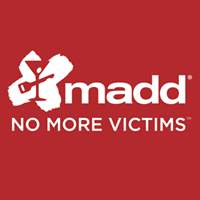NEWS RELEASE, FOR IMMEDIATE RELEASE: May 1, 2017
Contact: Becky Iannotta, MADD 202.600.2032; becky.iannotta@madd.org
Drunk Driving is Still the Biggest Killer on Our Roads
Drug Impaired Driving a growing problem, but still much to learn
WASHINGTON, D.C. (May 1, 2017) — In response to recent reports regarding an increase in drug impaired driving, Mothers Against Drunk Driving wants to remind the public that drunk driving is still the biggest cause of traffic deaths and injuries in the nation.
The Governors Highway Safety Association (GHSA) released an update last week to its 2015 drug impaired driving report. As a result, some media coverage has suggested that drugged driving has overtaken drunk driving in terms of traffic fatalities.
There is no doubt that drugged driving is a serious problem. In 2015 MADD expanded our mission to include drug impaired driving with a commitment to continue serving victims of both drunk and drugged driving. In addition, MADD advocates for policies based on research and science to help prevent alcohol and drug impaired driving.
According to the GHSA report, drugs were found in 43 percent of drivers tested in fatal crashes compared to 37 percent in alcohol involved crashes. This does not mean that more crashes were caused by drugged driving than drunk driving.
Here’s why:
- The tests for drugs and alcohol and the data reported by the National Highway Traffic Safety Administration’s Fatal Accident Reporting System (FARS) are completely different. They do not provide an apples to apples comparison.
- FARS estimates alcohol deaths through Blood Alcohol Concentration (BAC) tests and through statistical models that estimate BACs for drivers missing test results. There is a scientifically demonstrated correlation between the BAC level and impairment.
- FARS does not have a similar way to establish impairment by drugs or apply a similar formula for presence of drugs or drug impairment when a test result is missing. Further, drug testing procedures vary considerably by state and even within states.
- Tests for drugs (other than alcohol) are conducted on a limited pool of drivers — often only when presence of drugs is suspected. Therefore, a jurisdiction that tests more drivers may have a higher percentage of drivers who are known to be drug-positive.
- If drivers with any presence of alcohol were considered, the death toll attributed to alcohol use would be even higher.
- Tests for drugs (other than alcohol) can detect presence of a wide range of drugs, from illegal substances to over the counter and prescribed medications which may or may not have been misused. And unlike alcohol, there is no measure of the amount of the drug.
- The presence of drugs found in a driver’s system does not mean impairment, nor does it imply that drug use was the cause of the crash. Drug tests may not reflect recent use, but use days ago. Currently, there is no way to distinguish presence of drugs and impairment.
“We still know that alcohol is a drug, and is the leading killer on the highway. One third of deaths are due to drunk drivers — those with illegal BACs of .08 percent or higher,” said MADD National President Colleen Sheehey-Church. “Drugged driving is an important issue, but we want to remind everyone that drunk driving is far from solved. We look forward to working with our partners in highway safety to help solve these challenges and keep our roads safe from impaired driving.”
About Mothers Against Drunk Driving
Founded in 1980 by a mother whose daughter was killed by a drunk driver, Mothers Against Drunk Driving® (MADD) is the nation’s largest nonprofit working to end drunk driving, help fight drugged driving, support the victims of these violent crimes and prevent underage drinking. MADD has helped to save more than 350,000 lives, reduce drunk driving deaths by more than 50 percent and promote designating a non-drinking driver. MADD’s Campaign to Eliminate Drunk Driving® calls for law enforcement support, ignition interlocks for all offenders and advanced vehicle technology. MADD has provided supportive services to nearly one million drunk and drugged driving victims and survivors at no charge through local victim advocates and the 24-Hour Victim Help Line 1-877-MADD-HELP. Visit www.madd.org or call 1-877-ASK-MADD.


